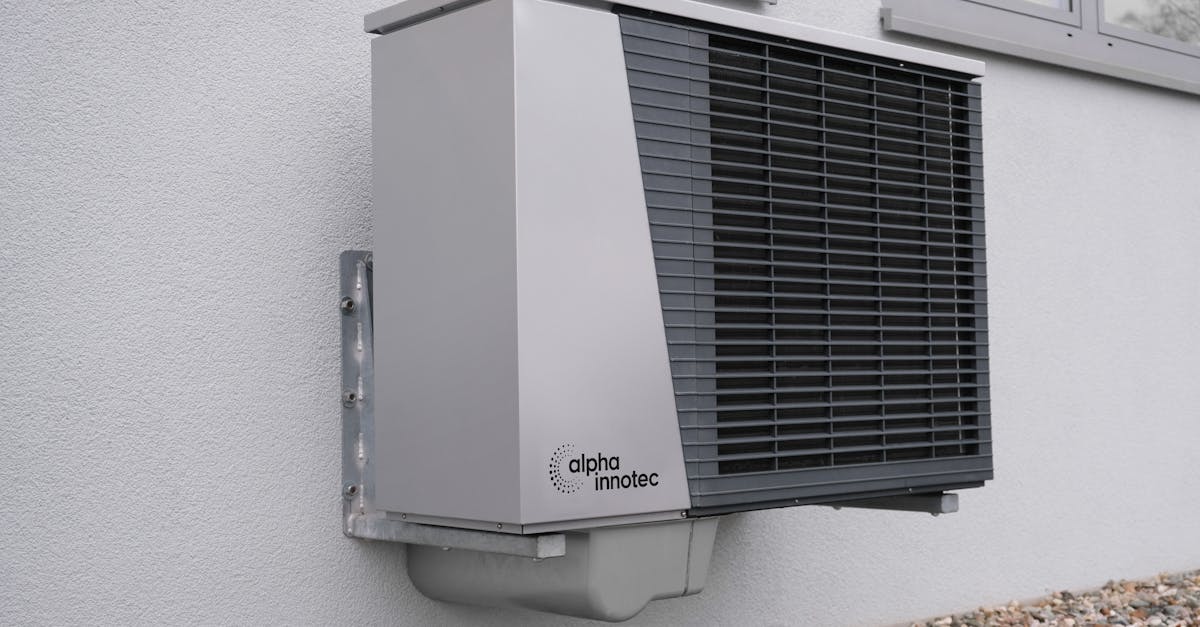Maximizing Efficiency: Selecting the Most Suitable Location for Ducted Air Conditioning

gs play a crucial role in determining the right air conditioning system. Look for units with high Energy Efficiency Ratings (EER) or Star Ratings, as they indicate better performance and lower operational costs. An energy-efficient system not only reduces electricity consumption but also contributes positively to the environment. Researching different brands and models, and comparing their features will help make an informed decision tailored to individual preferences and requirements.
Lifestyle and Usage Patterns2024-09-09
Understanding how occupants interact with their living spaces plays a critical role in selecting a suitable ducted air conditioning system. For families with multiple members, a system that offers zoned cooling can enhance comfort and efficiency. In contrast, individuals or couples may prefer a more basic setup that meets their straightforward temperature regulation needs. Observing daily routines, such as working from home or entertaining guests, helps in determining the required capacity and features of the air conditioning system.
Seasonal changes also influence usage patterns and affect the demand placed on the air conditioning unit. Regions with pronounced summer heat waves will see increased reliance on cooling systems, whereas milder climates may require less intensive usage. Additionally, understanding peak hours of air conditioning use allows for better system programming and energy efficiency. Regular assessments of the household’s cooling needs will ensure that the selected system remains efficient while accommodating lifestyle changes.
Customising Air Conditioning Needs
Tailoring air conditioning systems to fit individual preferences and requirements can significantly enhance comfort levels. It is important to consider factors such as room size, layout, and property orientation when selecting a ducted system. Custom options may include zoning features, allowing different areas to be heated or cooled independently. This flexibility caters to diverse needs, ensuring that specific rooms receive the attention they require for optimal climate control.
User habits and family dynamics also play a role in defining air conditioning needs. Assessing the daily routines and usage patterns can provide insights into the most suitable settings. For instance, homes with varying occupancy levels might benefit from systems that can adjust energy output based on real-time demands. Integrating smart technology into the setup can further optimise performance, making it easier to manage and monitor the system remotely.
Professional Installation Services
Selecting skilled professionals for the installation of ducted air conditioning is crucial for ensuring optimal performance. These technicians should possess relevant qualifications and experience in installing air conditioning systems tailored to specific residential or commercial requirements. Engaging a licensed installer ensures compliance with safety standards and building codes, offering peace of mind that the job is completed correctly.
It's important to consider technicians who provide a comprehensive service. A good installation team should conduct a thorough assessment of the site, accounting for factors such as insulation, layout, and energy efficiency. This personalised approach not only enhances the overall efficiency of the system but also maximises comfort levels in the space. Ultimately, investing in professional installation can significantly impact the longevity and effectiveness of your air conditioning system.Table Of Contents
Finding Qualified TechniciansCommon Duct Design Mistakes
How do I choose the right ducted air conditioning system for my home?Utilizing Advanced Software for Duct Design
To choose the right system, consider factors such as the size of your home, insulation quality, climate conditions, and your specific heating and cooling needs. Consulting with an HVAC professional can also help you make an informed decision.
What lifestyle factors should I consider when selecting ducted air conditioning?Benefits of ComputerAided Design in Duct Layout
Consider your daily routines, the number of occupants in your home, and how often you host guests. These factors can influence the size and power of the system needed to ensure comfort throughout your living spaces.FAQS
Can I customise my ducted air conditioning system to meet specific needs?
Yes, many ducted air conditioning systems can be customised with zoning options, allowing you to control temperatures in different areas of your home according to your preferences and usage patterns.What are some common duct design mistakes to avoid?
Why is professional installation important for ducted air conditioning systems?
Professional installation ensures that the system is set up correctly, operates efficiently, and adheres to safety standards. Improper installation can lead to energy wastage, reduced performance, and potential damage to the system.How can I identify inefficient duct layouts in my system?
How does duct design affect indoor air quality?Related Links
Exploring Location Options for Ducted Air Conditioning InstallationWhat is the importance of duct size in HVAC performance?Factors Influencing the Selection of the Right Location for Ducted Air Conditioning
Selecting the Right Location for Ducted Air Conditioning: A Comprehensive GuideHow can advanced software assist in duct design?
Best Practices for Selecting the Right Location for Ducted Air Conditioning InstallationCommon Duct Design Mistakes
Key Considerations for Selecting the Right Location for Ducted Air ConditioningPoor duct design often stems from inadequate sizing. Oversized ducts can lead to airflow noise while undersized ducts create resistance, resulting in reduced efficiency. These issues may not manifest immediately but tend to cause long-term problems in heating and cooling systems. Ensuring the correct duct size is vital for balanced airflow and energy consumption.
How to Determine the Ideal Location for Ducted Air Conditioning in Your PropertyAnother common error arises from improper placement of ducts. Ventilation systems that don’t account for the building's layout can create cold spots or stagnant air regions. Additionally, failing to account for obstacles such as walls or furniture can hinder air movement. An effective duct layout should consider both the physical space and the intended airflow patterns throughout a structure.
Identifying and Rectifying Inefficient Layouts